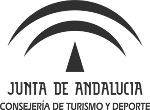Study of relationship between osteoarthritis, postural changes and osteoporosis in postmenopausal women
Abstract
Objectives. To verify the relationship between postural changes, osteoarthritis, and bone mineral density in women with osteoporosis in a research group of participants in this area.
Methods. Seventy four Brazilian women aged 50 years or older with osteoporosis sent to Clinical Hospital were assessed. After anamnesis the subjects were evaluated in posture with a postural framework. The experimental protocol consisted of two groups: control group (without postural changes) and study group (with postural changes).
Results. The age average in the study group was greater than in the control group. In the joint changes, 65 subjects showed osteoarthritis in some part of the body. In the whole group assessed, 19 showed change in posture and all of them have osteoarthritis too.
Conclusion. This research showed that posture changes are direct relationship with advanced age. It concluded that posture assessment is essential to prescribe the most objective and efficient exercise program, with understanding of the biomechanical incidence forces, but not forgetting to strengthen the muscles to maintain the corporal posture.


